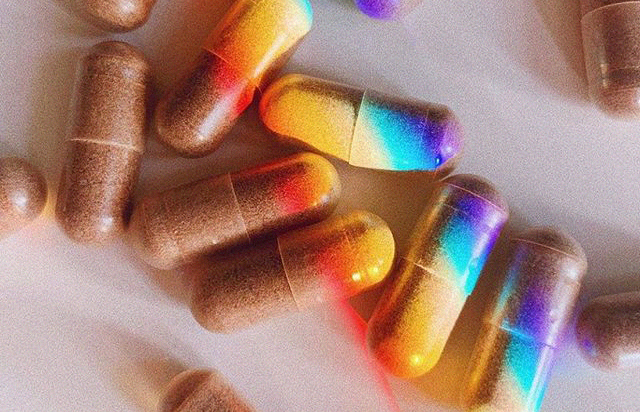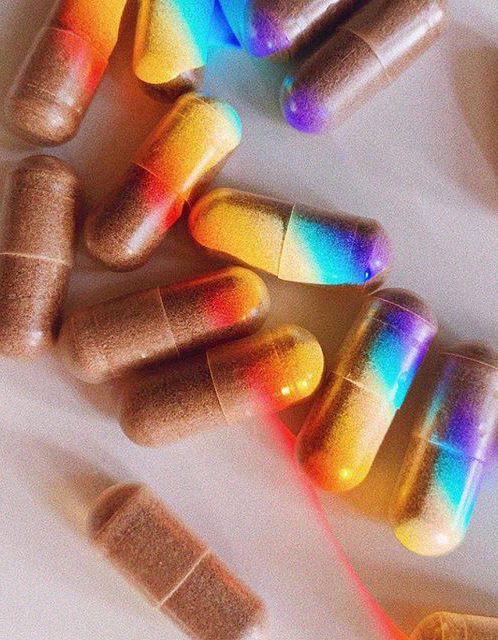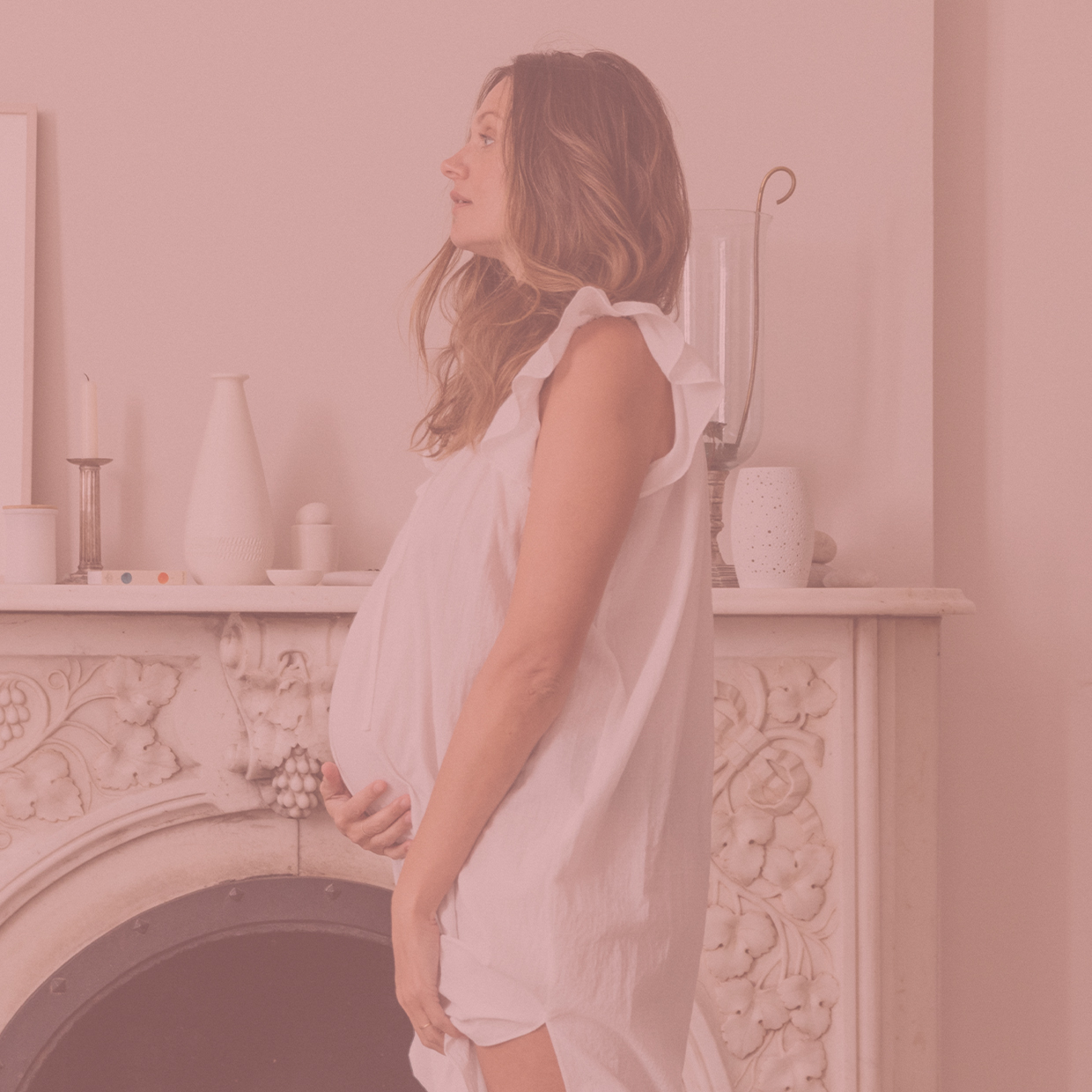Jenni Schwartz decided to encapsulate her placenta following her second pregnancy. She had a hard time – both physically and emotionally – in recovering from her first birth and heard that digesting one’s placenta could help with common hormone fluctuations that occur after delivery. “After I had my first daughter, I have a clear memory of my friend telling me that I will feel like myself again and how foreign that felt,” Jenni says. “I’m not sure if I had postpartum depression or was just terribly sleep deprived and settling into a new way of life. Either way, when I was pregnant with my second daughter, I heard that eating your placenta regulates your hormones and prevents postpartum depression so I figured, why not?”
Victoria Cairo went ahead with placenta encapsulation – the term for when a placenta professional dries out the placenta and turns it into ingestible pills – toward the end of her pregnancy. It was one of those things she had heard mentioned among motherhood circles, but hadn’t given it much thought. “I started to do research and determined that the jury was very much out on whether there were any measurable health benefits to ingesting your placenta,” Victoria says. “Anecdotally, some new parents seemed to swear by it and others seemed to have sort of indifferent responses to it.”
For many pregnant women, particularly those who walk the line between Eastern and Western medicine, the idea of eating one’s placenta is intriguing. It claims to offer a variety of health benefits following birth, like regulating postpartum hormones, helping bring milk in sooner and increasing energy levels. While little – if any – scientific evidence supports these claims, the placenta has played a sacred role in post-birth rituals for various cultures dating back hundreds of years leading up to today. There’s the idea of burying one’s placenta to honor the birth, burning it and spreading its ashes or even using it to make art. Most commonly practiced today is placentophagy, the process of eating, or consuming the human placenta, which is often done by doulas or homeopaths specializing in the practice. The placenta is removed from the hospital following birth, dehydrated, ground into a powder and put into capsules to be taken as soon as 48 hours postpartum, but you can digest the placenta in myriad of ways, grinding it up into a smoothie or sauteing it into lasagna. However you choose to digest your placenta, just know that it’s often unregulated and doesn’t come without risk.
“I’ve done over 500 placenta encapsulations and I’ve only heard positive things about it,” says Edna Spurduto, founder of Live Love Birth, which offers doula and placenta support services. “It really heals women in so many ways. It brings nutrients back into the body, especially vitamin K, which is really lacking after labor and delivery. It helps with milk supply and helps prevent postpartum depression. So many of my clients who have various anxiety issues swore it helped them through that time.”
So many of my clients who have various anxiety issues swore it helped them through that time.”
Edna Surduto
Denise Bolds of The Bold Doula also performs encapsulation services and hails the power of the placenta – so much so that she presented an oral history of the placenta at Placentacon, a conference of healthcare providers, doulas, placenta artists and those who are enamored by the placenta. Out of all of her clients, she’s only had one who didn’t react well to the pills. “I’ve had one mom who said she got nauseous when she took it,” says Denise. “I don’t know if it was a psychosomatic situation, where she had her own internal thoughts about ingesting the placenta. Otherwise, I’ve had no negative responses to it.”
But not everyone is totally down. Dr. Jen Gunter, an obstetrician and commonly known skeptic of Eastern medicine admonished placentophagy in the New York Times after the Centers for Disease Control and Prevention reported a case of neonatal sepsis linked to maternal handling or ingestion of encapsulated placenta contaminated with the bacteria group B streptococcus. Small traces of potentially harmful elements, like arsenic, mercury and lead, have also been found in placenta pills.
“I do not recommend eating a placenta for several reasons,” says Dr. Caitlin Fiss, an obstetrician and gynecologist based in New York. “First, there is no clinically proven health benefit. Second, and probably most important, the process of desiccating and encapsulating is not FDA approved or regulated. Particularly in this time of Covid-19, I have serious concerns about the safety of processing the placenta for ingestion. The ingested placenta could be contaminated–either from the encapsulation process itself or from the birth process– with bacteria or viruses that could be harmful to the person eating the placenta and also potentially to a breastfed baby.”
Edna Spurduto says that anyone working with a placenta must follow strict OSHA guidelines on handling and sterilizing, including wearing full PPE gear in an effort to maintain the highest level of safety. For Victoria, her experience taking placenta pills wasn’t as positive as she would have hoped. “I had a really wild reaction,” Victoria says. “I woke up shaking and shivering uncontrollably and sweating like crazy. It was a pretty intense set of physical sensations that lasted for about 10 minutes and then subsided. I don’t know if it was related to the placenta pill or was something else entirely. However, it left me a little bit nervous and so I decided to take a break from the pills.”
Jenni Schwartz had a positive experience taking the pills. While she’ll never quite know if it was due to her placenta or not, it doesn’t much matter anyway. “Granted I was in a totally different situation – I was more experienced, I knew what to expect, I was busy with my toddler and living in a new location,” Jenni says. “So was it my placenta that helped or my different lifestyle? Who knows? All I know is that I felt a thousand times better, and that was good enough for me.”




